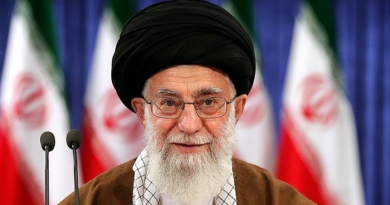India Eliminates Daniel Pearl’s Killer in Precision Strike on Terror
New Delhi — In a high-precision military operation under Operation Sindoor on Wednesday, Indian forces have successfully eliminated Abdul Rauf Azhar, a top commander of the Pakistan-based terror group Jaish-e-Mohammed (JeM) and one of the principal conspirators in the 2002 kidnapping and beheading of American-Jewish journalist Daniel Pearl.
The Indian Air Force carried out the strike in Pakistan-occupied Kashmir (PoK), targeting a known Jaish safehouse believed to be harboring senior militant leadership. According to senior defense officials, Rauf Azhar was confirmed to be present at the location at the time of the strike and was neutralized in the attack.
A Symbolic and Strategic Blow
Rauf Azhar, the younger brother of JeM’s founder Masood Azhar, had long evaded justice. He was internationally wanted not only for his role in Daniel Pearl’s brutal murder but also for orchestrating multiple terror attacks against Indian civilians and security personnel.
His death marks a significant blow to the Jaish-e-Mohammed network, which has been responsible for numerous terror incidents, including the 2019 Pulwama attack that killed 40 Indian paramilitary troops.
The Legacy of Daniel Pearl’s Case
Daniel Pearl, the South Asia bureau chief of The Wall Street Journal, was abducted in Karachi, Pakistan, while investigating links between British extremist Richard Reid and Al-Qaeda. Days later, a gruesome video of his beheading was released by his captors.
While Omar Saeed Sheikh was arrested and convicted in the case, global intelligence agencies consistently pointed to Abdul Rauf Azhar as the shadow figure who coordinated Pearl’s kidnapping and death from behind the scenes.
Despite multiple requests from the United States and Interpol for his arrest, Rauf Azhar remained shielded under Pakistan ISI’s “strategic depth” policy—where certain terrorist elements are quietly tolerated.
Global Implications
The operation comes at a time of heightened tension between India and Pakistan following the Pahalgam terror attack, which killed 26 civilians. It is also a stark reminder of the lingering impunity enjoyed by some terror masterminds within Pakistan’s borders.
India’s strike and the death of Rauf Azhar has drawn attention globally. Human rights activists and observers of counterterrorism policy have long criticized Pakistan for not doing enough to curb terrorism emanating from its soil. With this operation, India has filled that vacuum of accountability.
The Broader Message
By targeting one of the key orchestrators of one of the most heinous crimes against journalism in recent history, India has signaled a shift toward assertive counter-terror operations across borders when provoked.
While Islamabad has yet to issue an official statement, intelligence sources suggest that security has been beefed up around JeM installations and family members of Masood Azhar.
This operation is being viewed not only as a military success but also as a moral reckoning. Daniel Pearl’s memory—and the legacy of free press—has found a measure of long-overdue justice.



